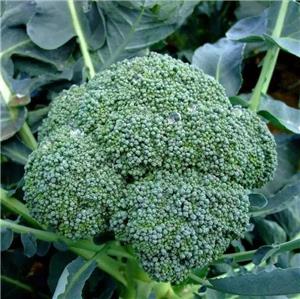An Apple a Day Keeps the Doctor Away — Fact or Fiction?
You likely know the familiar expression, “An apple a day keeps the doctor away.”
While the phrase was first coined in 1913, it was based on a Pembrokeshire proverb that originated in 1866.
In fact, Notes and Queries magazine was the first to publish the original quote: “Eat an apple on going to bed, and you’ll keep the doctor from earning his bread.”
Although research shows that eating more apples may not actually be associated with fewer visits to the doctor, adding apples to your diet can help improve several aspects of your health (
This article takes a closer look at whether eating an apple a day can truly help keep the doctor away.

Apples have been associated with a number of benefits that could help promote long-term health.
Highly nutritious
Apples are loaded with important nutrients, including fiber, vitamins, minerals, and antioxidants.
One medium apple provides the following nutrients (
Calories: 95
Carbs: 25 grams
Fiber: 4.5 grams
Vitamin C: 9% of the Daily Value (DV)
Copper: 5% of the DV
Potassium: 4% of the DV
Vitamin K: 3% of the DV
In particular, vitamin C acts as an antioxidant to neutralize harmful compounds known as free radicals and protects against disease (
Apples are also a great source of antioxidants like quercetin, caffeic acid, and epicatechin (
Supports heart health
Studies show that eating more apples could be associated with a lower risk of several chronic conditions, including heart disease (
In fact, one study in over 20,000 adults found that consuming higher amounts of white-fleshed fruits and vegetables, including apples, was linked to a lower risk of stroke (
This may be due to the presence of flavonoids found in apples, which are compounds that have been shown to reduce inflammation and protect heart health (
Apples are also loaded with soluble fiber, which may help reduce blood pressure and cholesterol levels, both of which are risk factors for heart disease (
Contains cancer-fighting compounds
Apples contain several compounds that may help prevent cancer formation, including antioxidants and flavonoids (
According to one review of 41 studies, consuming a higher amount of apples was associated with a decreased risk of developing lung cancer (
Another study observed similar findings, reporting that eating more apples was tied to a lower risk of colorectal cancer (
Other research suggests that a diet rich in fruits and vegetables could protect against cancer of the stomach, colon, lungs, oral cavity, and esophagus (
However, more research is needed to evaluate the potential anticancer effects of apples and determine whether other factors may be involved.
Other health benefits
Apples have also been linked to several other health benefits that could help keep the doctor away:
Support weight loss. Due to their fiber content, apples have been shown to promote feelings of fullness, decrease calorie intake, and increase weight loss (
14Trusted Source ,
15Trusted Source ).
Improve bone health. Human, animal, and test-tube studies have found that eating a higher amount of fruit could be associated with increased bone mineral density and a lower risk of osteoporosis (
16Trusted Source ,
17Trusted Source ).
Promote brain function. Animal studies suggest that eating apples could help reduce oxidative stress, prevent mental decline, and slow signs of aging (
13Trusted Source ).
Protect against asthma. Studies show that an increased intake of apples may be linked to a lower risk of asthma (
13Trusted Source ).
Reduce the risk of diabetes. According to one large review, eating one apple per day was tied to a 28% lower risk of developing type 2 diabetes, compared with not eating any apples at all (
18Trusted Source ).
SUMMARYApples are highly nutritious and have been associated with several health benefits, including improved heart health and a reduced risk of certain types of cancer.
Eating an apple every day is unlikely to harm your health.
However, it’s possible to have too much of a good thing, and eating multiple apples each day may cause several adverse side effects.
In particular, rapidly increasing your intake of fiber over a short period of time can cause symptoms like gas, bloating, and stomach pain (
Like other fruits, apples also contain a good chunk of carbs in each serving (
While this is not a problem for most people, those following a low carb or ketogenic diet may need to moderate their intake.
SUMMARYEating an apple every day is unlikely to negatively affect your health. However, eating excessive amounts of apples every day could contribute to digestive issues.
Rich in vitamins, minerals, and antioxidants, apples are an excellent addition to the diet and may offer several health benefits.
However, many fruits and vegetables offer a similar set of nutrients and can be equally beneficial for health.
Plus, incorporating a variety of other fruits and vegetables into your routine can add more flavor and nutritional value to your diet.
Here are a few other fruits and vegetables that you can swap in for apples from time to time:
bananas
broccoli
carrots
cauliflower
grapefruit
kale
peaches
pears
pineapples
raspberries
spinach
strawberries
tomatoes
SUMMARYMany fruits and vegetables offer a set of nutrients and health benefits that are similar to those of apples, and they can be enjoyed as part of a healthy, balanced diet.
Although eating more apples may not literally be associated with fewer visits to the doctor, apples are rich in nutrients and offer several benefits for disease prevention and long-term health.
In addition to apples, many other fruits and vegetables provide a similar set of nutrients and health benefits.
For best results, enjoy a variety of fruits and vegetables as part of a nutritious, well-rounded diet.
Written by Rachael Link, MS, RD on July 6, 2020 — Medically reviewed by Kathy W. Warwick, R.D., CDE




